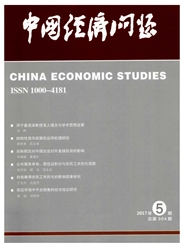

 中文摘要:
中文摘要:
本文采用“中国家庭追踪调查”项目2010年的调查数据,研究了个体心理健康特征对家庭股票投资的影响。研究结果表明:心理健康是影响居民股票投资的重要因素,以抑郁程度度量的心理健康状况对个体的股票投资决策存在显著的负向影响,并且在纠正二者之间可能存在的内生性问题后,这一影响依然存在。特别地,本文发现心理健康影响居民投资股市的可能的作用渠道包括认知差异效应、偏好效应和预算约束效应。本文的政策含义在于,政策制定者应充分重视居民心理健康问题与居民股票投资、金融市场发展之间的潜在关系。
 英文摘要:
英文摘要:
Using the data from China Family Panel Studies (CFPS) in 2010, this paper analyses the impacts of householders' mental health traits on their household stock investment from an empirical perspective. Empirical results show that mental health is an important factor influencing the household stock investment. Householders' mental health traits measur- ing with the level of depression exert significantly negative effects on household stock investment and these effects still exist af- ter correcting the possible endogeneity problem. Besides, this paper finds that the influencing mechanisms include cognitive difference effects, preference effects and budget restrict effects. Therefore, policymakers should attach great importance to the relationship among mental health, household stock investment and the development of China's financial market.
 同期刊论文项目
同期刊论文项目
 同项目期刊论文
同项目期刊论文
 期刊信息
期刊信息
